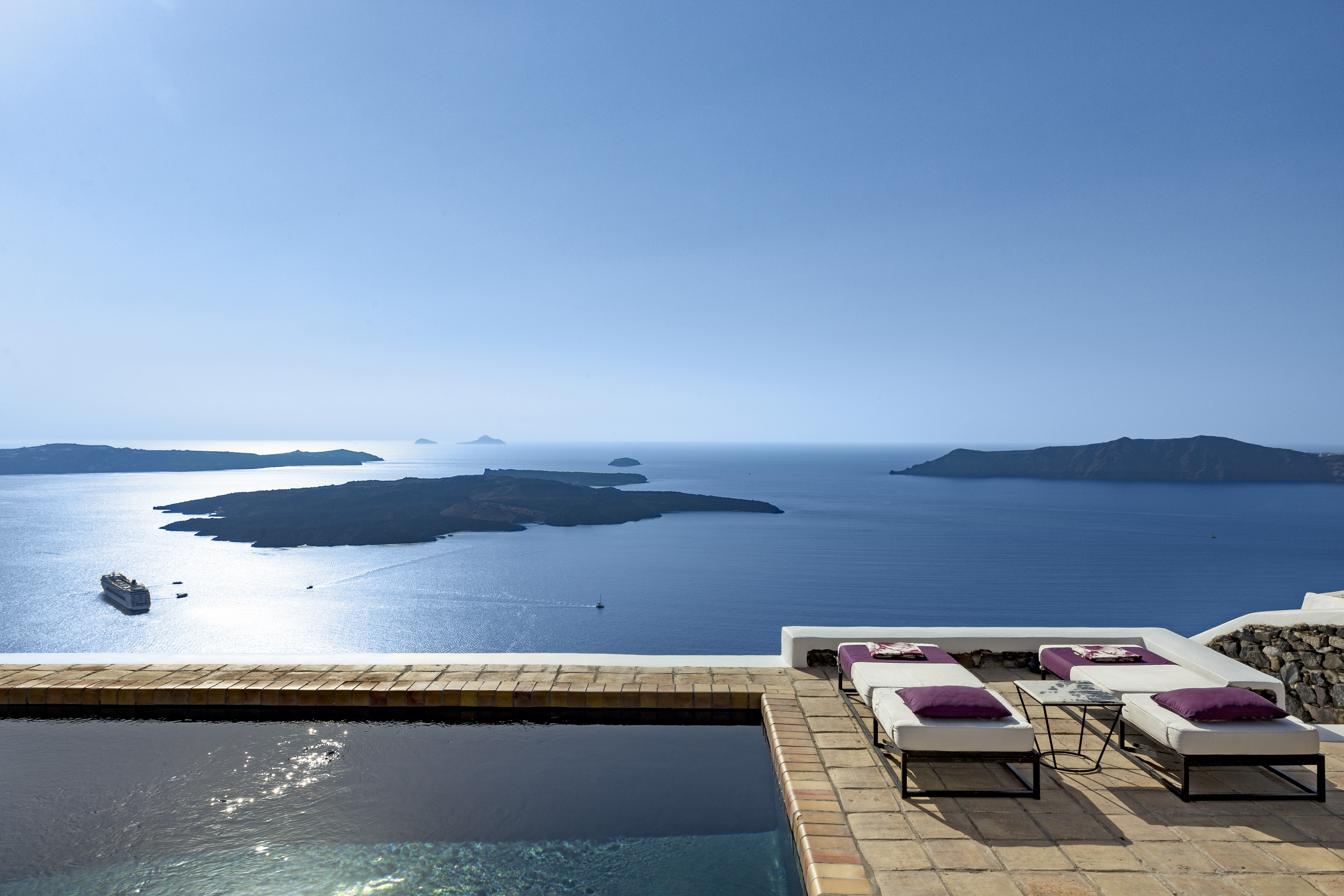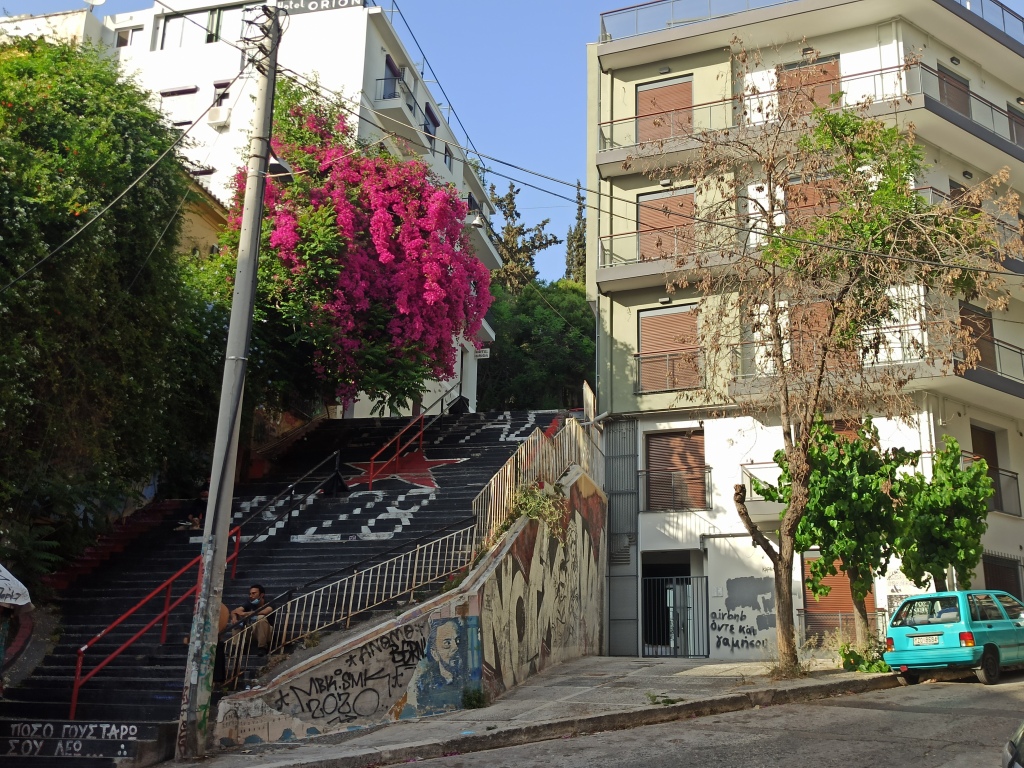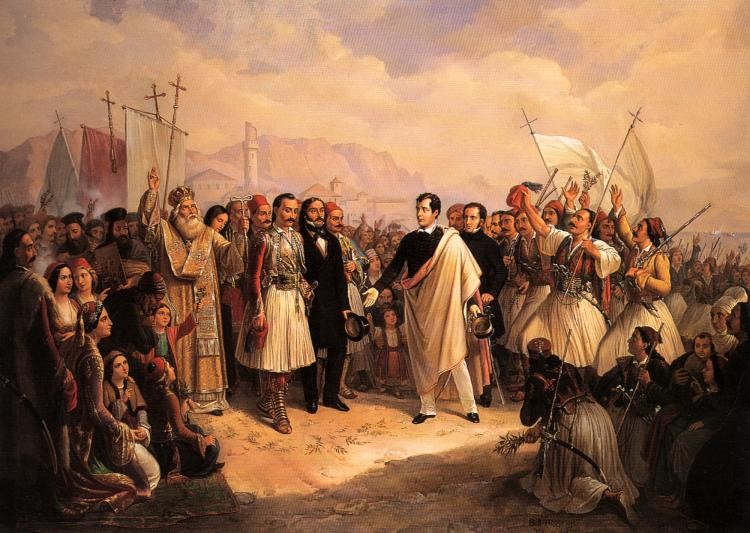Discovering a city through the eyes of local people is the best way of appreciating and understanding any new place. My friend Daphne is Greek and lives in Athens. I first met Daphne strolling through the National Garden. A mutual friend introduced us. Funnily enough we had quite a lot in common, we’d both been students at Oxford University and we both thought about things in a similar sort of way. Coincidence, you might say, or was it a giant hand of fate compelling our paths to cross. I really don’t know but I’ve enjoyed my communications with Daphne ever since.
To occupy myself during the pandemic I’ve been writing about my friends scattered across Europe and their experiences during various ‘lockdown’ situations. Daphne kindly wrote about her experiences in my second Letter from Europe #2 just a few months ago. We both realised that writing is therapeutic and started to hatch a plan to write together again.
In an incredibly short period of time (although she did request and receive a deadline from me) Daphne wrote an article about the tiny publishing houses that exist in Athens offering an alternative set of books and pamphlets to the avid reader. In the process she introduced me to the fascinating neighbourhood of Athens known as Exarcheia. This is a section of Athens just a few kilometres north of the Acropolis, surrounded by university buildings and for years the home of Greece’s intellectual left-leaning political activists. In the last few decades it’s also been home to a variety of technically illegal but practically sensible squat communities, offering accommodation to refugees arriving from Afghanistan, Syria and Eritreia.
Here are Daphne’s thoughts on Exarcheia and her reflections on the micro-publishing presses that flourish there. This article is powerfully and grittily illustrated with the photographs of @athenian.polykatoika more usually known as Shelagh-Katerina Boucoyannis. Shelagh is an architect living and working in Athens.
‘The notorious neighbourhood of Exarcheia in Athens. Depending on the day, or your news source, it is either the home of earnest artists, bohemians, and left-leaning intellectuals, or a den of illegal activity, unkempt anarchists and simmering rage. Walking around, you can see proof of both; graffiti and rebellious posters mixed in with quirky cafés and tiny bookshops, second hand and new in equal measure. It takes a closer look to realise that almost all the bookshops are actually tiny printing houses. As with the second hand bookshops, one cannot help but wonder how and whether they make ends meet…..
Looking down, side-stepping pot-holes one day, plunged in thought about the economics of the industry, I suddenly caught sight of a shop window, and a book cover I recognised. A thin, amber book, a translation of selected works by Kavafy, the Greek juxtaposed with the English. An elegant, thoughtful edition, that had been recommended to me by my favourite bookshop in Santorini, to be included in a small Greek-themed capsule library we have in each suite to make the hotel a home. Next to it – again in English – a book by Ilias Venezis, the writer who so eloquently described the aftermath of the catastrophic Greek expedition into Asia Minor, that led to one of the largest forced population exchanges in modern history. Next to that, Papadiamantis – timeless for those who have read him, dated and irrelevant for those who have not. Then, Pope Joan, by Emannuel Roides, wickedly witty and even today indecently irreverent, written in the formal Greek kathareuousa – since abolished – that now makes it inaccessible to many. Further on Samarakis, Karagatsis, Vizyinos. Stepping sideways to look at each title, I was so absorbed I bumped into the wall.
Here were the Greek classics, in English. What a brilliant, brilliant idea, a tribute to Greek culture, a complement to the ancient Greats, an addition to Zorba, an enrichment, a broadening, an invitation. I have fallen in love with Aiora Books. When we started our little project at The Vasilicos, my intention was to show the ways in which Greece finds herself in foreign thought. Homer, obviously, and Plato. Aesops’ myths, a translation of Zorba the Greek, and of course our poets, especially the Nobel Laureates. But that was it, mostly. The rest of the shelf was comprised of Fermor’s travel-writing, and Woodhouse’s modern history. Durrell’s childhood and Fry’s interpretations. Retellings of ancient tales by Madeleine Miller, Pat Barker, Margaret Atwood. Acclaimed English-speaking writers dipping into – mostly ancient – Greece for inspiration, with love and admiration. A respectable effort, yet somehow falling short of it’s lofty goal of cultural exchange.
And here, now, the other side of the table. A good part of the Greek Lit 101 reading list, in English (and increasingly in Italian, French, Spanish and German).
Aiora’s translations are delicate, the writers’ voices come through clearly. I admit that reading Karagatsis in English felt like sacrilege and I stopped; one of the few privileges of speaking Greek is access to the original. But equally, guiltily, I drank in Pope Joan, unfettered by the language barrier of the original writing, delighting in the easy flow of the translated text, able to appreciate Roides’s eloquence.….
Daphne’s words continue………..
So here they are, the modern Greeks. The voices that express the thoughts and preoccupations of the past two centuries. What it feels like to lose your home and country only to be sent ‘back’ to an unknown and barren wilderness. A crime novel based on a critique of womanhood in the 1800s. Life in Syros among the shipping community, increasingly depressing and miserable after financial disaster strikes. The recurring themes of society, integration, and belonging. The cruelty of fate and human passions. Aspirations, hope and disillusionment. Aiora makes accessible the voices of the modern Greeks, the ones that have been shaped by long Ottoman rule, two world wars, regional unrest, poverty, displacement and immigration. The voices of the indirect rather than direct descendants of the romanticised and glorious Greats. The voices that echo in the heads of the Greeks of now.
Aiora, one could argue, has definitely found a way to make ends meet. Available online at aiorabooks.com and of course, in your suite at The Vasilicos 😉

Daphne’s observations about Greek history are astute and accurate. So often our idea of Greece is a strange mixture of sun-drenched holiday islands and a collection of ancient ruins in the middle of a chaotic and congested city. We idealise the world of the Ancient Greeks, imagining a group of gods and goddesses, reclining on velvet sofas on a hillside surrounded by emerald green forests and tinkling waterfalls, whilst dining on ambrosia and drinking goblets of nectar. In fact, Greece’s modern history has been turbulent and tragic. From the 15th century Greece was ruled by the Ottoman Empire (modern day Turkey). It wasn’t until the War of Independence in the 1820s that Greece re-established national freedom. This makes me smile because of course the British version of this war strongly implies that Lord Byron was a key figure (personally) in defeating the Turks. Whilst I’m sure he did play a supportive and welcome role I very much doubt that he defeated the Turks single-handedly. Although his heroic actions do play deliciously into his ‘enigmatic’ persona as a rakish character and 19th century version of Mick Jagger, using poetry rather than song.
Although of course with both Byron and Jagger it’s all about words and the way we use those words. In that sense they have everything in common with the publishers at Aiora Books who select titles for translation and make them available to bigger audiences. All three are recognising the power of words and then readers like Daphne and me are appreciating those words. I’m going to have to finish here with a quote from Byron (my favourite actually),
.…But words are things, and a small drop of ink, falling, like dew, upon a thought produces that which makes thousands, perhaps millions, think…………..
So next time I’m in Athens I’ll make a beeline for Aiora Books – but for now I’ll have to make do with the website!




NOTES:
- Words in italics by Daphne Valambous – Daphne owns a fabulous boutique hotel on the island of Santorini – you can read more here: The island of Santorini weaves her magical spell……
- Daphne’s hotel is: https://www.thevasilicos.com/
- Photographs: @athenian.polykatoikia – the Athenian Polykatoikia is an alternative anthology of the city of Athens by Shelagh-Katerina Boucoyannis, an architect living and working in Athens. The word ‘polykatoikia’ is the Greek name for the building blocks that have dominated the local housing scene since the beginning of the 20th century.
- To learn more about Aiora Books: https://aiorabooks.com/
- To read more about Exarcheia and it’s fascinating social challenges – I’d suggest:
- Molly Crabapple: https://www.newyorker.com/news/dispatch/the-attack-on-exarchia-an-anarchist-refuge-in-athens
- OR
- The Guardian: https://www.theguardian.com/cities/2019/aug/26/athens-police-poised-to-evict-refugees-from-squatted-housing-projects
- For a little light-hearted wine tasting: Santorini to Thessalonika – A Tour of Greece from vine to wine
- Created by Daphne and Janet, photos by Shelagh (mostly). Edited by Janet.
- July 2021
- Enjoy!























Such an interesting collaboration with Daphne, Janet! This is, as you say, a side of Athens tourists don’t see. Hoping to see more collaborations in your future–thank you!m
LikeLiked by 2 people
Hear, hear! Well said and well-written.
Best,
John
LikeLiked by 2 people
Lovely ladies, so interesting. Thank you! Wishing you both a successful tourist season.
LikeLiked by 2 people
Thank you Kendell – so appreciated…………..
LikeLiked by 2 people